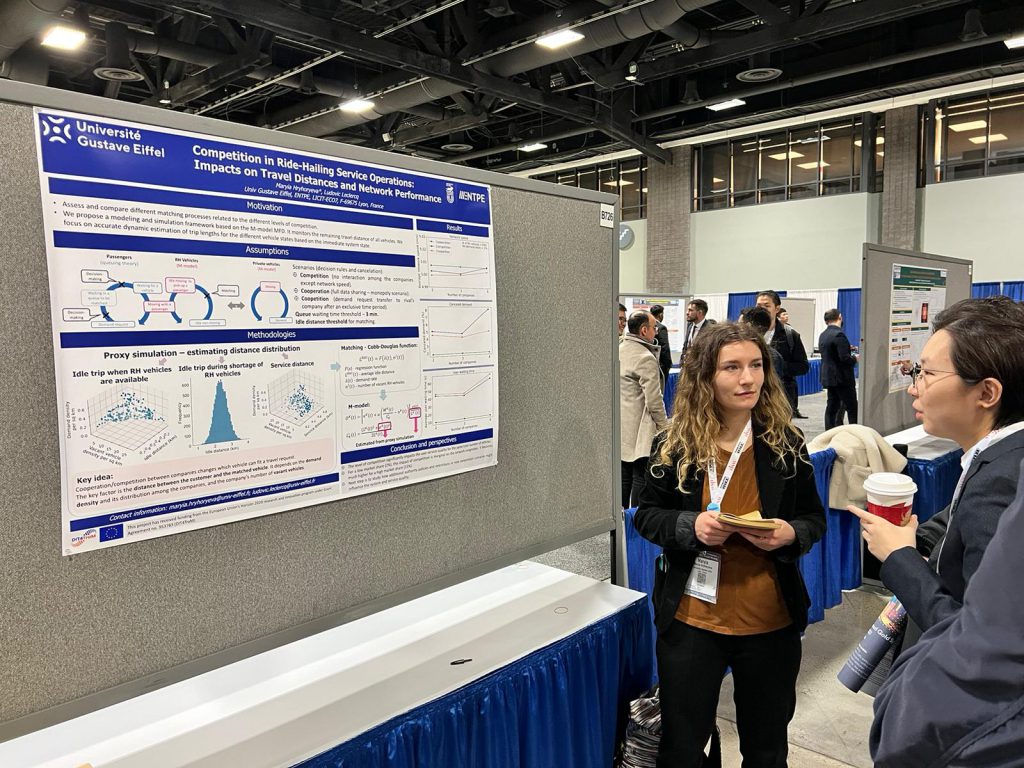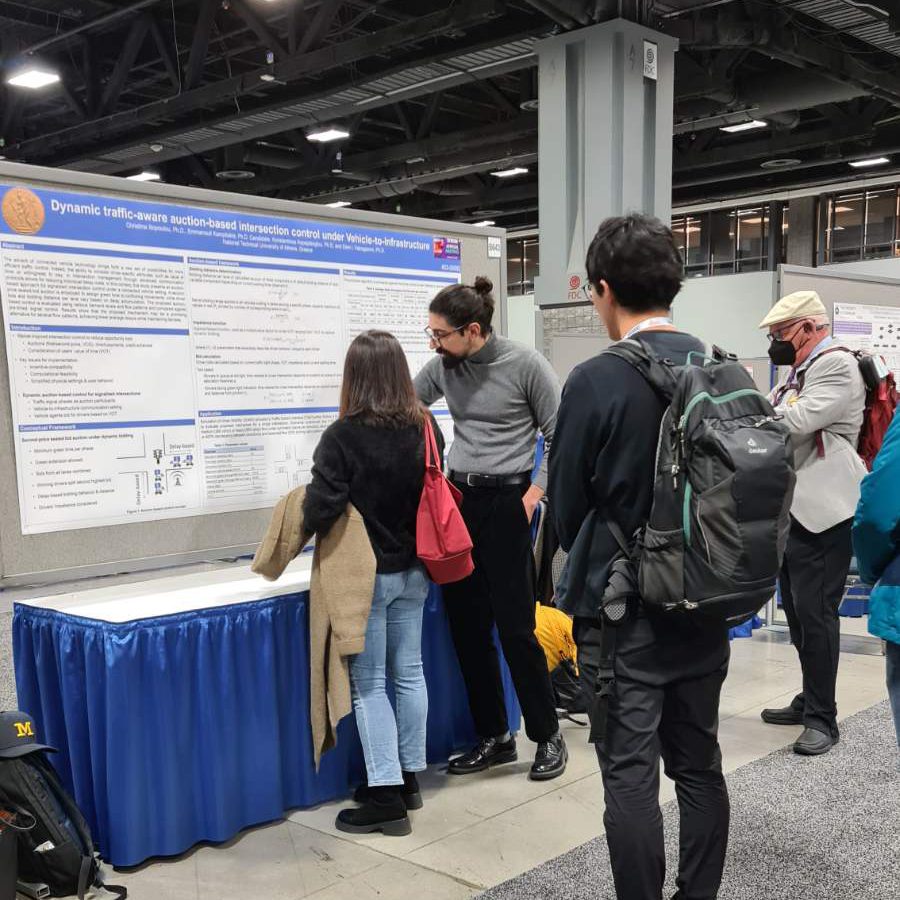DIT4TRAM has been making waves in the world of traffic management with its innovative approaches to solving the problems of congestion and inefficiency in large urban networks. The project has been collaborating with leading experts in the field from around the world to showcase their research at the Transport Research Board (TRB) Annual Meetings in Washington DC over the past two years.
In 2022, the EPFL team presented their research on efficient max-pressure traffic management for large-scale congested urban networks. The team explored the potential benefits of distributed systems over centralized ones and developed a new distributed dynamic traffic management approach with multi-level, multimodal perimeter control with priorities, cooperation and various levels of information exchange.
The University of Gustave Eiffel presented their research on distributed demand management schemes via tradable, multi-modal travel permits, to balance user-centric versus system-optimal objectives (including but not restricted to equity, sustainability, and security). The team focused on the use of Tradable Credit Schemes to foster mode choice and computation of the equilibrium using a macroscopic and dynamic model (trip-based MFD).
In 2023, the EPFL team returned to the TRB Annual Meeting with two poster presentations. The first presentation covered a dynamic multi-region MFD model for ride-sourcing systems with ride splitting. The team explored the potential benefits of dynamic ride-splitting in reducing congestion and improving the efficiency of urban transportation systems. The second presentation covered a two-layer adaptive signal control framework for large-scale networks combining efficient max-pressure and perimeter control. The team demonstrated the benefits of combining these two approaches for optimal traffic management. The presentations were given by Caio Vitor Beojone and Dimitrios Tsitsokas, who represented the project in the session.

The University of Gustave Eiffel was present at TRB2023 presenting five works related to DIT4TRAM. Mélanie Cortina presented her poster ‘An Assignment-Based Dispatching Heuristic For Agglomeration-Scale AMoD: Sensitivity Analysis Of The Demand Prediction Horizon On The Benefits For Supplier And Customers’. Her work investigates the effect of the horizon of prediction of the demand for dispatching ride-hailing vehicles. Maryia Hryhoryeva presented her poster, ‘Competition in Ride-Hailing Service Operations: Impacts on Travel Distances and Network Performance’. She studies in the impact of different degrees of cooperation between different ride-hailing companies on congestion and on the level of service perceived by the customers. Manon Seppecher presented her poster ‘A Decentralised Auction-based Framework For Rebalancing Ride-hailing Fleetswith Uncertain Request Probabilities’. She investigates the effects of decentralized redistribution to redirect empty ride-hailing vehicles to areas where demand is expected. Jiajie Yu presented her poster ‘Decentralized Traffic Signal Control with Deep Reinforcement Learning in a Multimodal Network: Seeking for a Trade-Off between Bus Service and Traffic Objectives’, to show how she uses reinforcement learning to control traffic lights to both reduce the car waiting time and ensure smooth bus operations. Finally, Louis Balzer held a presentation entitled ‘Modeling Tradable Credit Scheme for Multimodal Urban Networks with Departure Time: a Bathtub Approach’, focusing on results concerning evaluating tradable credits for mobility management in a dynamic and multimodal setting

The National Technical University of Athens (NTUA) was among the presenters at the TRB Annual Meetings 2023. NTUA presented a paper on the development of computationally efficient methods for incentive mechanisms. The paper presented a prioritization scheme based on an auction system in intersections, which aims to consider the intelligent infrastructure and vehicles to produce near-optimal vehicle trajectories and their corresponding prices in a computationally efficient way. This work is crucial for the project as it aims to find optimal and physically feasible sets of trajectories and corresponding payments and charges through the development of efficient methods. NTUA’s presentation made a valuable contribution to the event, emphasizing the significance of technology and innovation in addressing traffic management challenges.
The DIT4TRAM project has been working hard to bring together leading experts in traffic management to explore new approaches to solving the problems of congestion and inefficiency in large urban networks. The collaboration with TRB has been an excellent opportunity to showcase the project’s innovative research and to highlight the benefits of international cooperation in solving these complex problems – as we continue to explore new approaches to traffic management, the collaboration with TRB will remain a key part of this effort. We look forward to the next TRB Annual Meeting, where we hope to continue to showcase our innovative research and explore new opportunities for collaboration with experts from around the world.
